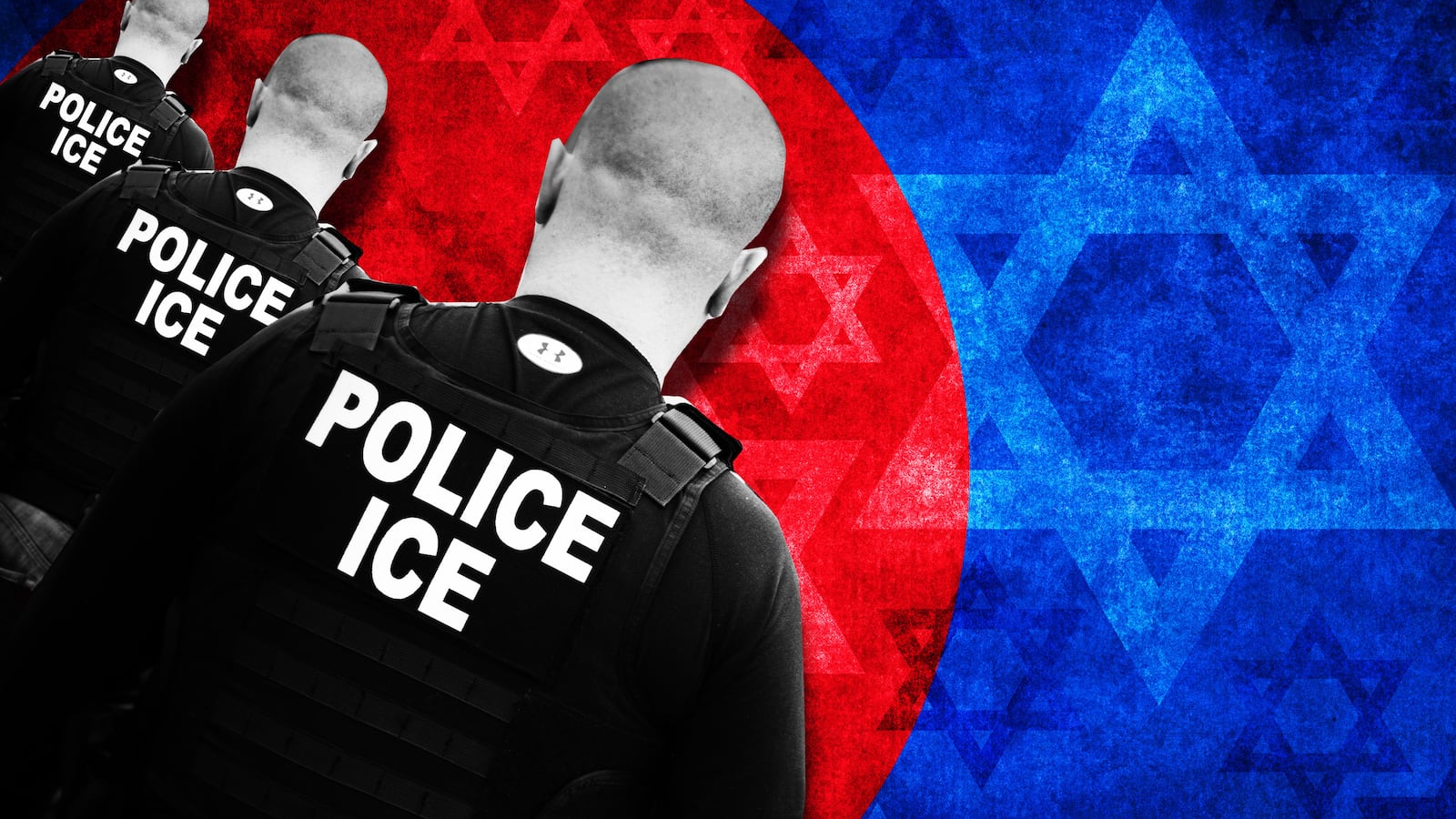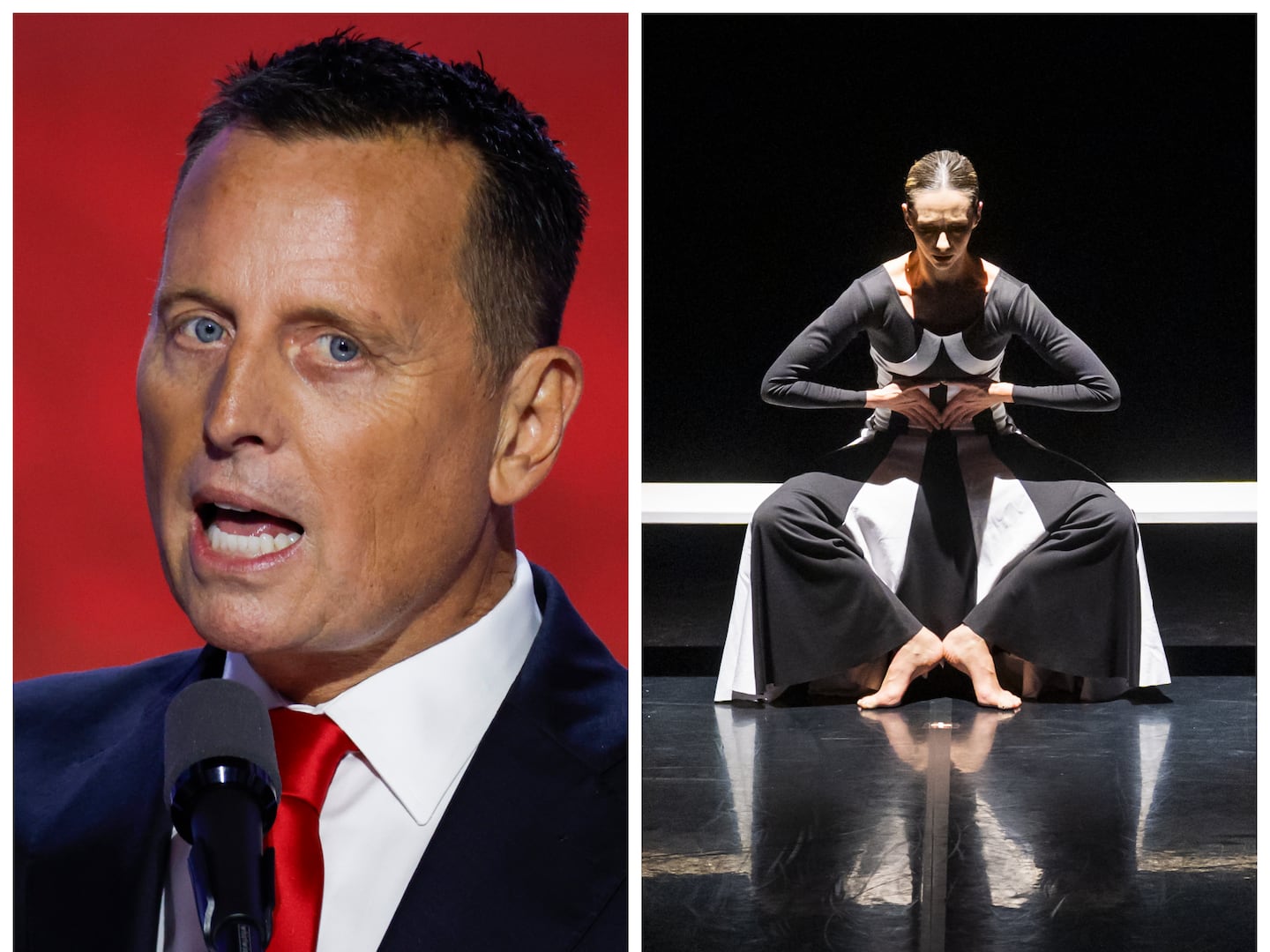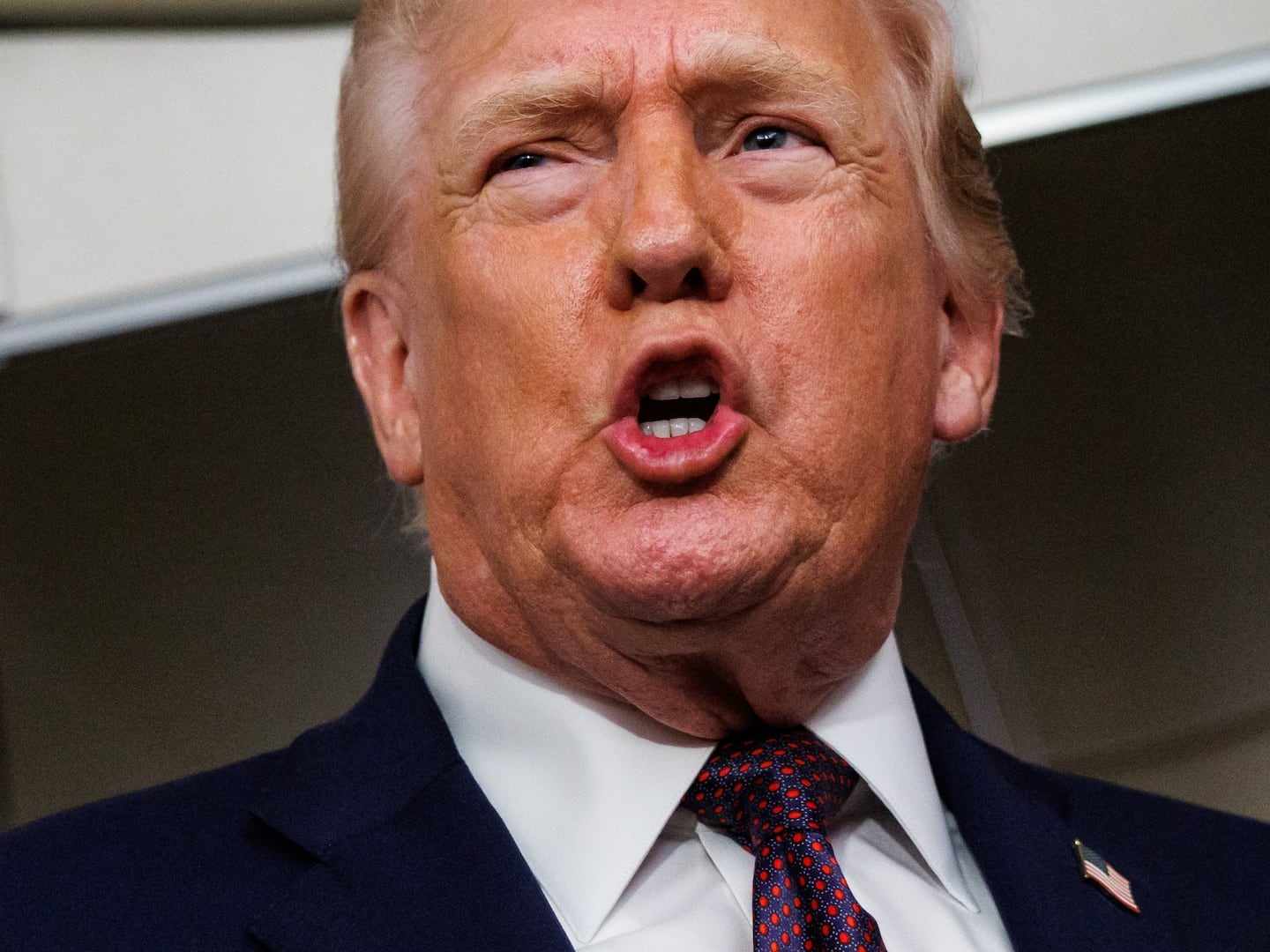Some of the protesters last month outside the Elizabeth, New Jersey Immigration and Customs Enforcement detention center spoke into megaphones. Others used an older call to action, blowing shofars, musical horns used in Jewish ceremonies for millennia. They carried banners with the words “never again means never again.”
This protest was the first in a series by Never Again Action, a newly formed coalition of Jews opposed to ICE and its treatment of immigrants. By the end of the evening, 36 activists were arrested. The group isn’t just challenging ICE; it’s entering a fierce debate within the Jewish community about when, if ever, to compare a situation to the Holocaust. While some Jews, and even the U.S. Holocaust Memorial Museum, object to comparisons between the Holocaust and the Trump administration’s treatment of migrants, other Jews are taking up the post-Holocaust cry of “never again” to protest migrant detentions and deaths.
And they’re willing to go to jail over it. Since the Elizabeth protest, Never Again Action and its allies, including immigrant rights organizations, have held demonstrations in D.C., Philadelphia, Chicago, New York City, Boston, San Francisco, and South Bay, California, resulting in more than 120 activist arrests.
Stephanie Guedalia, a Jewish activist arrested in Elizabeth said the debate over the term “never again” was secondary to the real issues she and others protest.
“Fuck the semantics. Children are dying. That should be enough,” she said. “My goal is not to convince you to use those semantics. It’s to get you to stop these atrocities.”
Sophie Ellman-Golan, Never Again Action spokesperson, said the group isn’t waiting for conditions to match those of the Holocaust to take action.
“We look at what is happening and what our government is doing immigrant communities,” Ellman-Golan told The Daily Beast. “We see nothing less than a mass atrocity. While conditions might not exactly mirror the Holocaust, we shouldn’t wait for them to mirror the Holocaust to take action. That’s why we say ‘never again’ means never again for everyone, and never again means now.”
Protesters at Never Again demonstrations have called attention to filthy and overcrowded conditions in U.S. detention facilities, and to the seven reported deaths of detained children in recent months. These activists, as well as politicians like Rep. Alexandria Ocasio-Cortez (D-NY), have referred to the U.S. camps as “concentration camps,” a term associated with but not exclusive to Nazi Germany.
But many on the right, and even some prominent Jewish institutions, have rejected comparisons between U.S. treatment of immigrants and Nazi treatment of Jews.
“The United States Holocaust Memorial Museum unequivocally rejects efforts to create analogies between the Holocaust and other events, whether historical or contemporary,” the U.S. Holocaust Memorial Museum wrote in a June statement. (Hundreds of scholars signed a letter urging the Holocaust Museum to reverse its stance.)
Guedalia said she understands why the debate, particularly around the slogan “never again” is so loaded in the Jewish community.
“‘Never again’ is a really interesting term. I grew up with it,” she told The Daily Beast. “It’s a double-edged sword. On the one hand, it means that if I see something like this, I’m going to stop it. Nothing like this is ever going to happen again. On the other hand, ‘never again’ means nothing like the Holocaust is ever going to happen again; nothing can ever compare to the Holocaust.”
“The question I have” for people who subscribe to the second meaning, she said, “is what needs to happen for you to say ‘I’m standing up?’ Does it need to be happening to the Jews? Does it need to be in Germany? Does it need to be in the 1930s and ’40s?”
Never Again Action organizes alongside longer-standing immigrant rights groups like Movimiento Cosecha. Cata Santiago, a community organizer who works with the immigrant rights group, said the protests linked the historical experiences of immigrant and Jewish communities.
“The Jewish community basically said ‘we will speak on the pain of our ancestors, as children of Holocaust survivors, as grandchildren of Holocaust survivors, and as a resilient people who have that in our lineage,’” Santiago said. “We were able to uplift our immigrant resilience as well. It definitely was a container for both communities to come together, build together, and take a stand.”
For some arrested in Elizabeth, the comparisons are as clear as recent family history.
Guedalia’s own great-grandparents were Belarusian Jewish partisans during Nazi occupation, she said. They escaped a Nazi roundup in their village (“their first story of disobedience and lawbreaking,” Guedalia said) and lived a hardscrabble life with other refugees in the forest. Old newspaper clippings show her grandfather with a homemade rifle reportedly used in skirmishes with Nazis. The couple’s daughter, Guedalia’s grandmother, was born in a refugee camp after their capture, Guedalia said.
A video of Guedalia’s arrest in Elizabeth has racked up more than a million views on Twitter, garnering new attention for the Never Again actions.
By demonstrating in major cities, and not just outside the most notorious border facilities, activists want to draw attention to ICE’s presence across the country.
“It’s not a new phenomenon that Trump has created, but a daily crisis that the immigrant community has endured for decades,” Santiago said. “We see the people impacted are immigrants all across the country, not just at the border.”
The groups are planning future protests, including another in D.C. on July 16. Never Again activists say they’ll continue using the slogan, even as some politicians object to it.
“We’ve heard a lot of politicians, including a lot of non-Jewish politicians, attempting to weaponize and use Jewish trauma in order to deflect away from the trauma that they are funding, that they just voted to give funding to against immigrants,” Sophie Ellman-Golan said.
For the Jewish and non-Jewish activists, the goal is the same, Santiago said: “to not let history repeat itself.”
“It’s what solidarity means, right?” she added. “You feel for each other.”
Correction: Guedalia's grandmother was born in a refugee camp.






